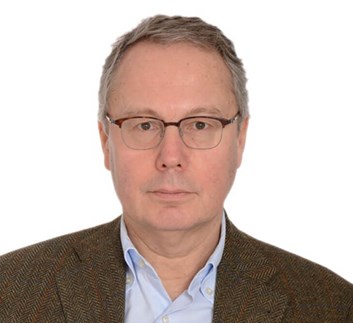We were delighted to catch up with Mehmet Manisali, President of the RSM Section of Oral & Maxillofacial Surgery, about his background and plans for the Section.

Can you tell us a little bit about what led you into the specialty of oral & maxillofacial surgery?
I came from a family of medics in Turkey. My grandfather was a paediatrician and both of my parents were dentists. I came to Bristol University to study dentistry and soon discovered my passion for the surgical aspect of medicine. There is something very exciting about the head and neck anatomy and I also found the history of maxillofacial surgery, through the world wars, very stimulating. These factors on the one hand, and the rapid progress of the speciality in the 80s and 90s on the other, made me to commit myself to maxillofacial surgery. Although, post medical school I had the opportunity to consider other head and neck surgery specialties, I preferred to remain part of this rapidly developing, unique branch of surgery.
What has been the best piece of advice that you have received in your career and what advice would you offer to those following in your footsteps?
I can’t say that in my training anybody has given me specific verbal advice that guided me. However, meeting some people had a great influence on my development. Mr Malcolm Bailey as a trainer, Mr Barrie Evans as a visionary and constant source of clinical advice and finally, albeit a limited period, exposure to Professor Brusati in Milan, who showed me to what heights the speciality of maxillofacial surgery can be taken to.
As far as giving advice is concerned I think there is only one overarching recommendation I can give to young surgeons, and that is to never depart from the principle of treating every child as if you are treating your own, every adult as if they are your brothers and sisters, and every elderly person as you would treat your parents.
It must have been a huge honour to be invited to become President of the RSM Oral & Maxillofacial Surgery Section. Are you enjoying this role and what have been your main aims?
It is a very particular joy. Throughout my long training, I have always watched out for academic activities at the Royal Society of Medicine and tremendously benefitted from them. It is a unique and very ‘British’ institute. An inspiring library and building, every corner of which smelling of medical history. However, what was missing was a special section for maxillofacial surgery. I was delighted, exactly 10 years ago, when the section of our specialty was established. Taking on the role of presidency for our section in an institute that I admired has been a great honour. From the point of view of education, this has given me an opportunity to give back what I have taken from the RSM in my training years.
Of course, the current COVID-19 pandemic has made life very different for everyone; how is the RSM Section supporting its members during the crisis?
Yes, it has been a testing period. Two carefully planned academic activities had to be cancelled to our great disappointment. However, every cloud has a silver lining, and, like everyone else, we have discovered the world of video conferencing.
We held two successful webinars, one on temporomandibular joint surgery and another on head and neck cancer reconstruction. A third one on the management of cleft lip and palate patients is due to take place this month. Furthermore, council members appreciated the fact that this method of communication brings a new dimension to medical education and we have decided to extend our webinar meeting programme to go beyond the COVID-19 period. It has now become an established part of our educational programme.
You are known for teaching and lecturing widely; do you see this as an important part of your work and are you continuing this virtually?
Not just important, I find this aspect of one’s professional activity crucial. First of all, teaching others keep you sharp in your game. It makes you think harder, question your practice more and teaches you to document better. Secondly, there is a tremendous joy in remaining in touch with the younger generations in your discipline. Thirdly, networking globally with likeminded clinicians opens up visiting opportunities for younger generations.
As well as my activities at the RSM, I have also established the Step-by-Step Surgical Courses educational entity, together with my colleague Mr Jahrad Haq. We organise a mixture of cadaveric and online course that are high quality and good value, for all head and neck specialties.
And finally, if you have any spare time, how do you like to relax?
One other thing I learned during the COVID-19 period has been the value and the need of ‘spare time’. I enjoy reading books on history and now I am engaging more with this. We, as a family, have fun cooking ambitious dishes together. I am also learning to compensate for that by engaging in home cycling! Finally, I am intending to continue in the post-COVID period with the drawing lessons at an art school I started last year. I never thought they could be such fun and give such a sense of achievement.



